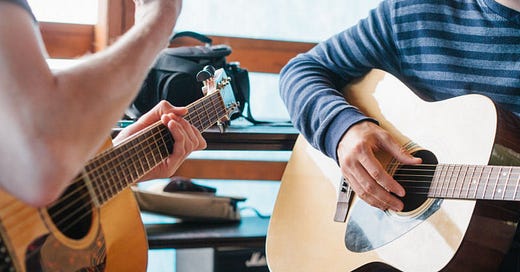Thank-you for subscribing to my newsletter. SubStack SoundHole Music is a free newsletter. My work in writing these helpful and informative guitar lessons, along with many other interesting articles on music, is completely supported by my paying subscribers. You can help support my Substack SoundHole Music Newsletter by investing as a paid subscriber. A…
Keep reading with a 7-day free trial
Subscribe to SoundHole Guitar Lessons to keep reading this post and get 7 days of free access to the full post archives.





